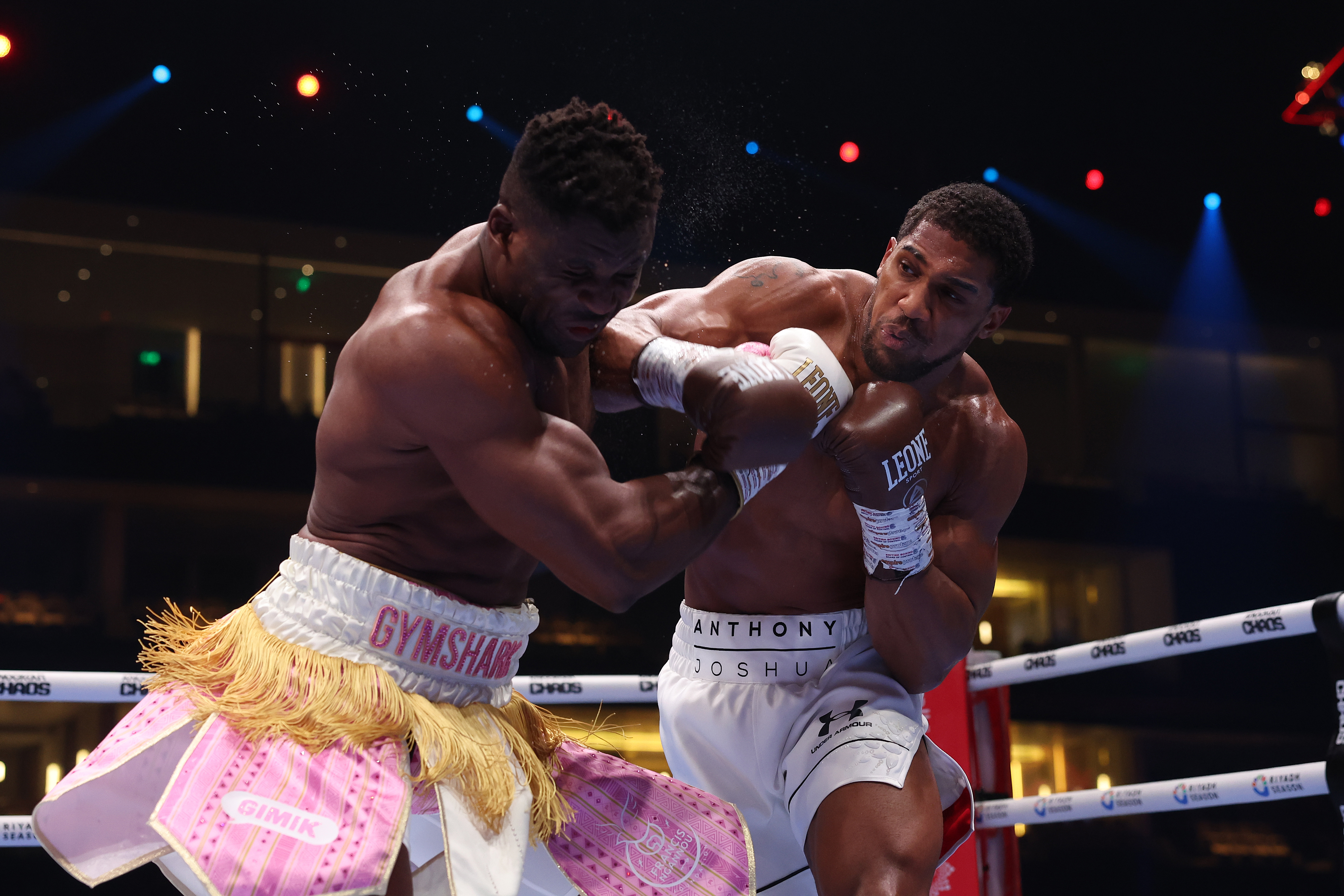Fans were quick to notice Tyson Fury's 'terrified' reaction after witnessing Anthony Joshua's explosive knockout of Francis Ngannou during a heavyweight clash in Saudi Arabia. Fury, who was seated in the front row, appeared shocked by the brutal finish delivered by Joshua.
Tyson Fury's Initial Reaction
As Anthony Joshua secured a second-round win by knocking out Ngannou, cameras captured Fury looking utterly stunned and motionless. Fury's wife, Paris, also appeared horrified ringside, adding to the tense atmosphere surrounding the fight.
Fan Reactions
Several fans took to social media to express their concerns about Fury's reaction, with many speculating that he might be worried about a potential showdown with Joshua. Despite eventually applauding Joshua's win, Fury's initial reaction did not go unnoticed by viewers.
Potential Showdown and Future Plans
With talks of a possible Fury-Joshua matchup in the future, boxing enthusiasts are eager to see the Battle of Britain come to fruition. Fury is set to face Oleksandr Usyk in May, with all the heavyweight world titles on the line, adding more anticipation to the already buzzing boxing scene.

Joshua, who recently resurrected his career after back-to-back defeats, expressed his desire to face Fury in the ring, emphasizing the stylistic matchup between them. Despite Fury's dismissive comments, the potential clash between the two heavyweight champions continues to be a hot topic among fans.
Frequently Asked Questions
What are the requirements to train for professional boxing?
In order to begin professional boxing training, you must be physically fit, have discipline and be willing to learn. In the beginning, you will need to master basic fundamentals such as stance, footwork and punches. You should join a reputable gym with trainers who are experienced and understand the nuances in professional boxing competition. Novice boxers typically undergo a rigorous regimen of conditioning, technique drills, and sparring to develop their skills before considering competition.
How important does physical conditioning play in professional Boxing?
Physical conditioning is paramount in professional boxing. Sport requires high levels strength, speed endurance and agility. Professional boxers are required to follow a fitness regimen that includes anaerobic and aerobic exercises, resistance and strength training, as well as flexibility workouts. The ability of a boxer to train and perform effectively is compromised without a superior level of physical conditioning.
Can anyone learn professional boxing?
Even though boxing may be accessible to all, not everyone is cut out to compete professionally. Professional boxing requires a unique blend of talent, physical abilities, mental toughness, and dedication. The sport has inherent risks that potential boxers will have to be willing and able to take. A thorough assessment by a coach can determine if a person has the potential to make a career out of boxing.
How long does it take to become an elite boxer?
The time needed to become a professional fighter can vary greatly. It depends on the individual’s starting skill level, adaptability to the sport, and the quality of training received. In general, it takes several years of training and experience as an amateur to be ready for the professional world. Some exceptional talent may advance faster, while others might need more development time.
What role does a manager or promoter play in the career of a professional boxer?
Promoters and managers have a major role to play in a fighter’s professional life. Managers are in charge of guiding a boxer’s professional career, negotiating contracts and managing the boxer’s business affairs. They can also assist in choosing the right fights for the boxer and take care of his or her interests. Promoters on the other hand focus on event planning, marketing of fights, attracting audience, and sponsor attention. This enhances a fighter’s public image and earning potential.
What are professional boxing’s risks?
As with any contact sport there are inherent risks in professional boxing. There are acute injuries, including cuts, bruises and broken bones. Also, there may be chronic conditions, like concussions syndromes or neurological disorders, that can develop from repeated impacts. Although boxing regulations and safety equipment can help to reduce risk, it is impossible to eliminate them completely. To box professionally, you must accept these risks and be able to recognize them.
What equipment is necessary for a new professional boxer?
Equipment essential for those who want to get into professional boxing include boxing gloves, mouthguards, headgears (for sparring) and the right footwear. For technical training, a heavy bag, a speed bag, a double-end bag and other aids are essential. Use quality gear that is durable and offers protection. Poor equipment can lead to injury.
Statistics
- Nutrition experts emphasize that over 70% of a boxer’s diet should focus on carbohydrates and proteins for energy and recovery.
- Statistical data indicates that there has been a 15% increase in the number of professional boxing gyms over the last decade.
- Less than 10% of professional boxers are undefeated throughout their career, highlighting the sport’s competitive nature.
- Approximately 80% of professional boxers start their career in the amateur ranks before transitioning to the professional level.
- On average, a professional boxer spars between 100 to 200 rounds in preparation for a major fight.
- Reports suggest that successful professional boxers can earn upwards of 50 times more than the median purse for entry-level professionals per fight.
- Professional boxers typically train 4 to 6 hours per day, 5 to 6 days a week, depending on their fight schedule.
External Links
usaboxing.org
boxingnews24.com
boxingscene.com
expertboxing.com
ringtv.com
wbcboxing.com
boxingnewsonline.net
How To
How to improve boxing defense
In professional boxing, improving your defense is just as important as your offensive skills. Incorporate drills that focus on head movement, footwork, and blocking. You should regularly practice sliding, bobbing, wriggling, and using angles to evade a punch. Use defensive maneuvers during sparring sessions to create muscle memory under live conditions. You can use your sparring experience to identify your defensive weaknesses. Work with your coach to improve them. The outcome of your fights can be significantly affected by how well you defend.

